Continuing our look at talented and trailblazing women, we’re highlighting the work of homeopathic physician Florence Nightingale Saltonstall Ward (1860-1919).
Ward was a prominent San Francisco surgeon, obstetrician, and gynecologist from 1887 to her death in 1919. She dedicated her life to providing safer, more accessible medical care for women and developing techniques that made childbirth less dangerous.
Ward received medical training from a number of hospitals and schools in Europe and the United States, including California’s foremost homeopathic institution, Hahnemann Medical College of the Pacific. She later served as Professor of Obstetrics at Hahnemann and held leadership positions in local and national organizations, including becoming vice president of the American Institute of Homeopathy. In 1915, Ward became the second woman to be elected to the American College of Surgeons, an appointment that recognized her many contributions to the fields of gynecology and surgery.
Ward built her own sanatorium exclusively for women in San Francisco between 1907 and 1910. She employed an all-female staff and provided unique career opportunities for women with professional medical training.
Ward’s practice blended conventional medical techniques with homeopathic remedies and treatments. Homeopathy was developed by Samuel Hahnemann in the early 19th century. His system was based on the theory that a substance that causes certain symptoms in a healthy person will cure those symptoms in a sick person. Ward was likely drawn to homeopathy in part because the field provided more opportunities for women than conventional medical practice. For instance, homeopathy schools regularly accepted female students while medical schools routinely denied women applicants because of their gender. Homeopathic professional organizations also welcomed women’s participation. As women struggled to find a place in the American Medical Association, Ward and other women helped lead the American Institute of Homeopathy and delivered papers at major homeopathy conferences.
At UCSF, we house the Florence Nightingale Ward papers, MSS 2011-08, and a collection of rare homeopathy material. Ward’s papers include homeopathic medicine kits used by her in the late 19th century. Take a look inside one monogrammed kit below. Many of the vials contain substances still used in homeopathic remedies today!
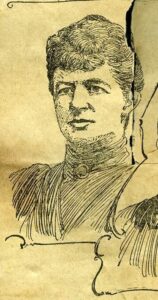
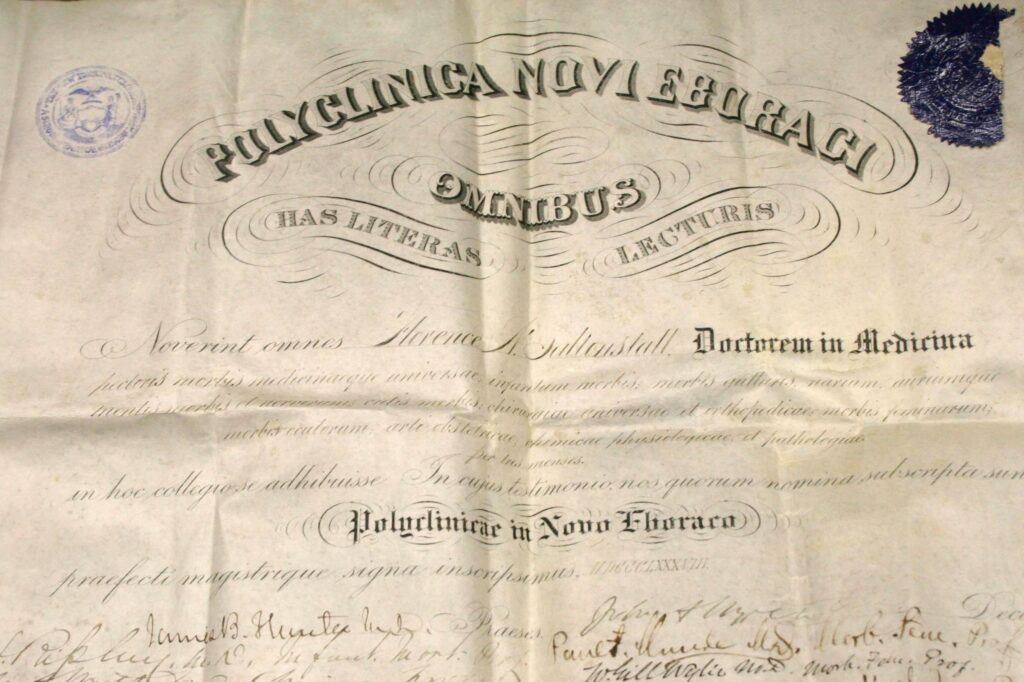
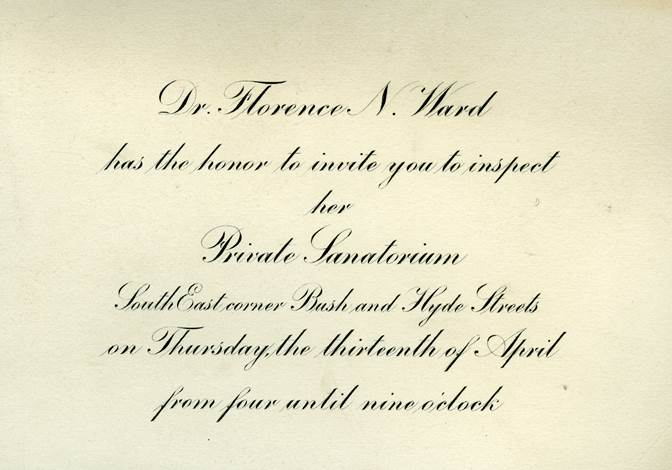
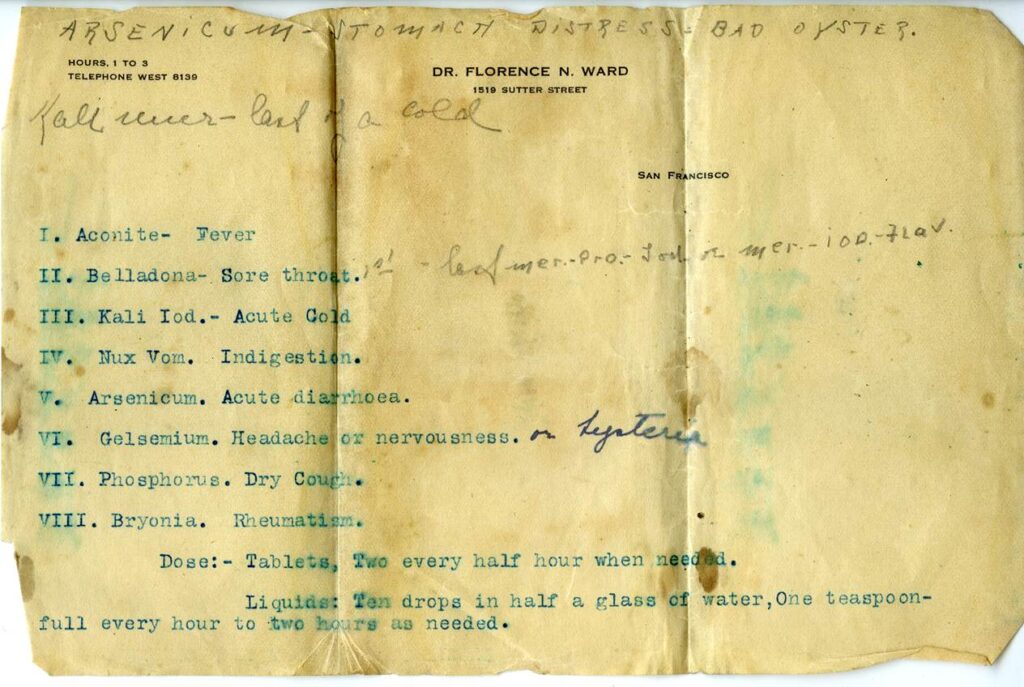
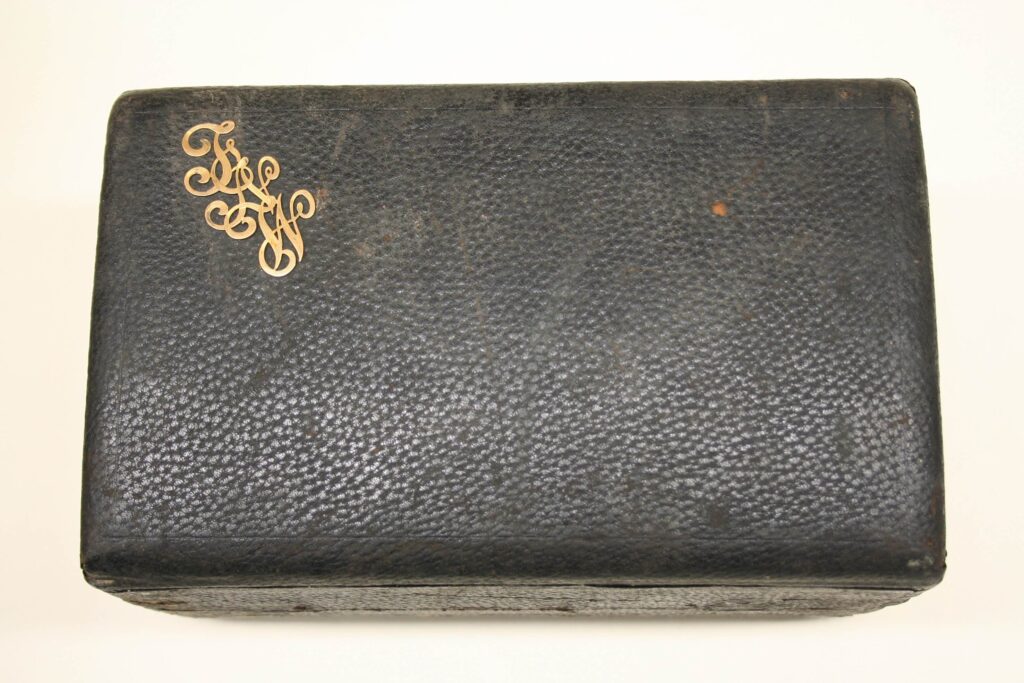
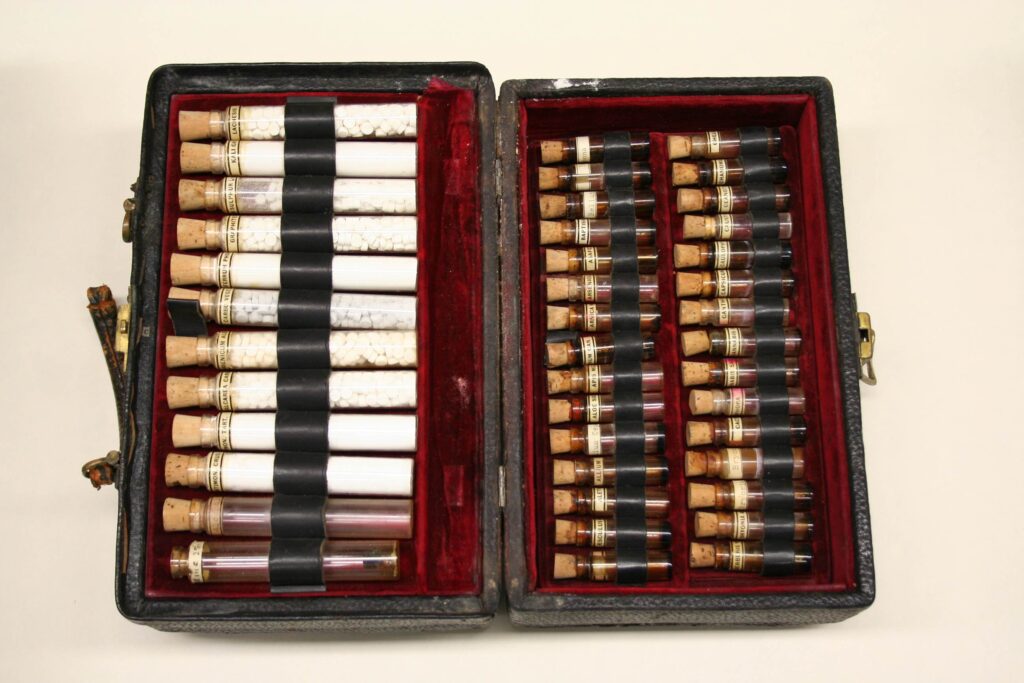
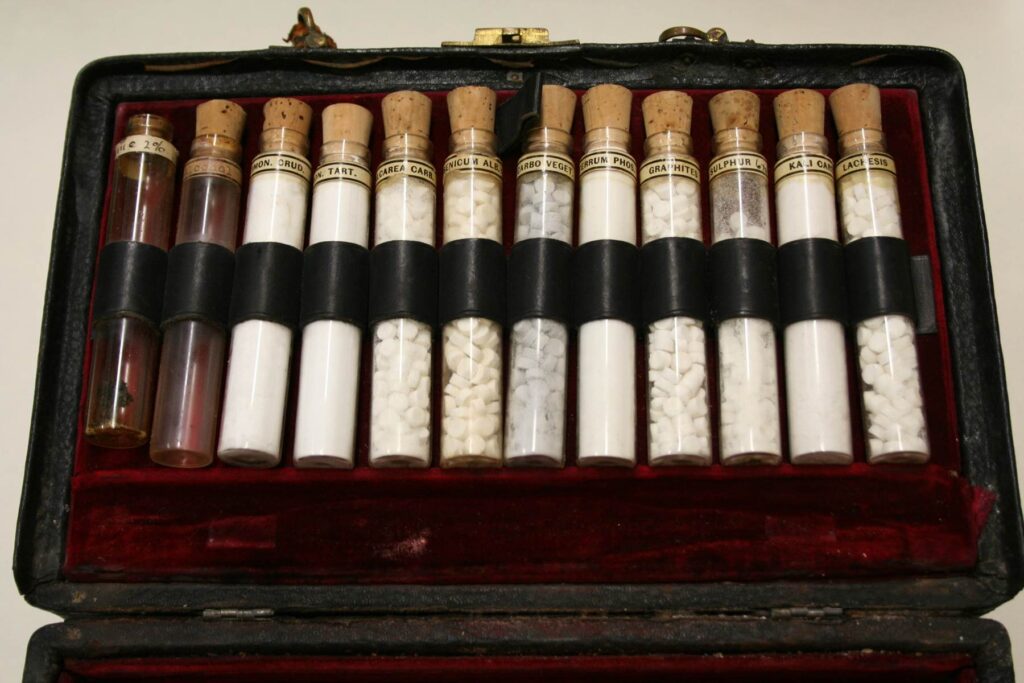
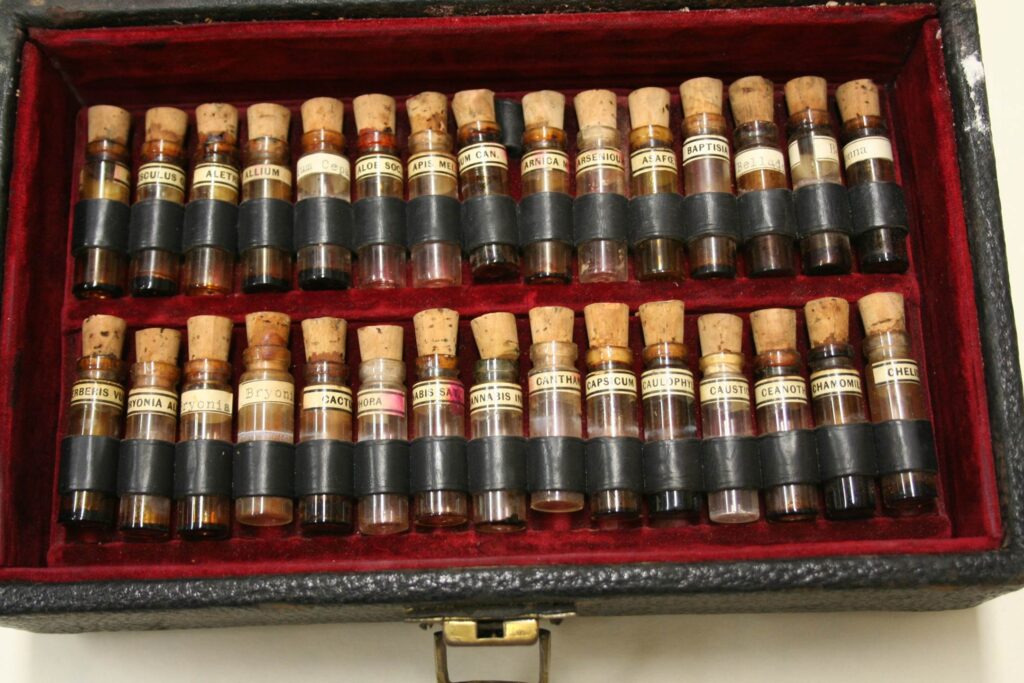
Dr. Florence Ward is my great-great aunt. It is unfortunate to note that the family did not talk about Dr. Ward’s achievements as something to be proud of. I think Dr. Ward was so outside the norm in her day that is bothered the status quo.
Abbie Bridges
Bridgeport Branch Librarian
This is so amazing Abbie that you are related to such an amazing woman. Sounds like her personal life wasn’t easy either. A local homeopath Edi https://homeopathyoakland.com/ did a thesis on her and is very interested in her life. Perhaps you could connect. Here’s what she wrote. https://static1.squarespace.com/static/57e7015803596e87cb1b328b/t/5c64e9f8e5e5f060f54dda6a/1550117369606/Florence_Ward.pdf
I’m so excited to read this. I never knew before this that Dr Florence used homeopathy ( but had wondered). She was an incredible woman. Your family must be so proud of how staunch she was and the enormous good she did Abbie. I have been reading about her use of eucalyptus oil for healing and cleaning/ sanitising which has now lead me to use Eucalyptus the homeopathic remedy, not a remedy I’ve ever known much about before.
Thanks for the post. 🙂